How Often Do Water Heaters
Need to be Replaced in Seaside?
Maintaining your water heater in Seaside is crucial to avoid unexpected hot water shortages and potential hazards. Unfortunately, many homeowners neglect this essential task until they're left with cold showers. In this informative guide, our experienced plumber, who specializes in water heater repair and replacement, will share valuable insights. We'll discuss the signs that indicate it's time to replace your water heater and explore important factors to consider when purchasing a new system. By reading on, you'll discover how to ensure a consistent supply of hot water for your family's comfort and convenience.

How long do water heaters last?
Hot water heaters play a crucial role in our daily lives, providing the hot water needed for showers, laundry, and dishwashing. However, like any other appliance, their longevity can be influenced by various factors. Typically, a hot water heater will last anywhere from 8 to 12 years.
Tankless water heaters typically have a longer lifespan compared to traditional units.
Inadequate installation or neglecting maintenance can considerably shorten the lifespan of a water heater.
Consistent upkeep and regular inspections are essential to maintain efficiency and prolong the lifespan of your water heater.
Keep in mind that excessive daily usage and high levels of hard water can expedite wear and tear on your unit, compromising its long-term effectiveness.


Do you have the budget for a new hot water heater?
Selecting the ideal water heater for your home and budget can be a daunting task, given the multitude of choices available. To ensure you make the best decision, take into account your budgetary constraints and the specific requirements of your household. Factors such as energy efficiency, capacity, and compatibility with your lifestyle should be considered. It's worth noting that although certain models may come with a higher initial cost, they can lead to substantial savings on your energy bills over time. Remember, investing in a high-quality water heater can result in significant long-term cost savings, so take your time and carefully evaluate all your options before making a final choice.

Replacing a water heater is a big decision
When it comes to water heater replacement, it's important to approach the decision with careful consideration. There are several key factors to keep in mind when selecting a new water heater, including efficiency, age, and cost. If your current water heater is over ten years old or constantly needs repairs, it's a clear indication that it may be time to explore upgrading to a more efficient model. By doing so, you can not only improve the performance of your water heater but also reduce your utility bills.

How to extend the lifespan
of your water heater
To ensure a long-lasting and efficient water heater, it's essential not to overlook its maintenance until it completely breaks down. By following these tips, you can extend the lifespan of your water heater and optimize its performance:
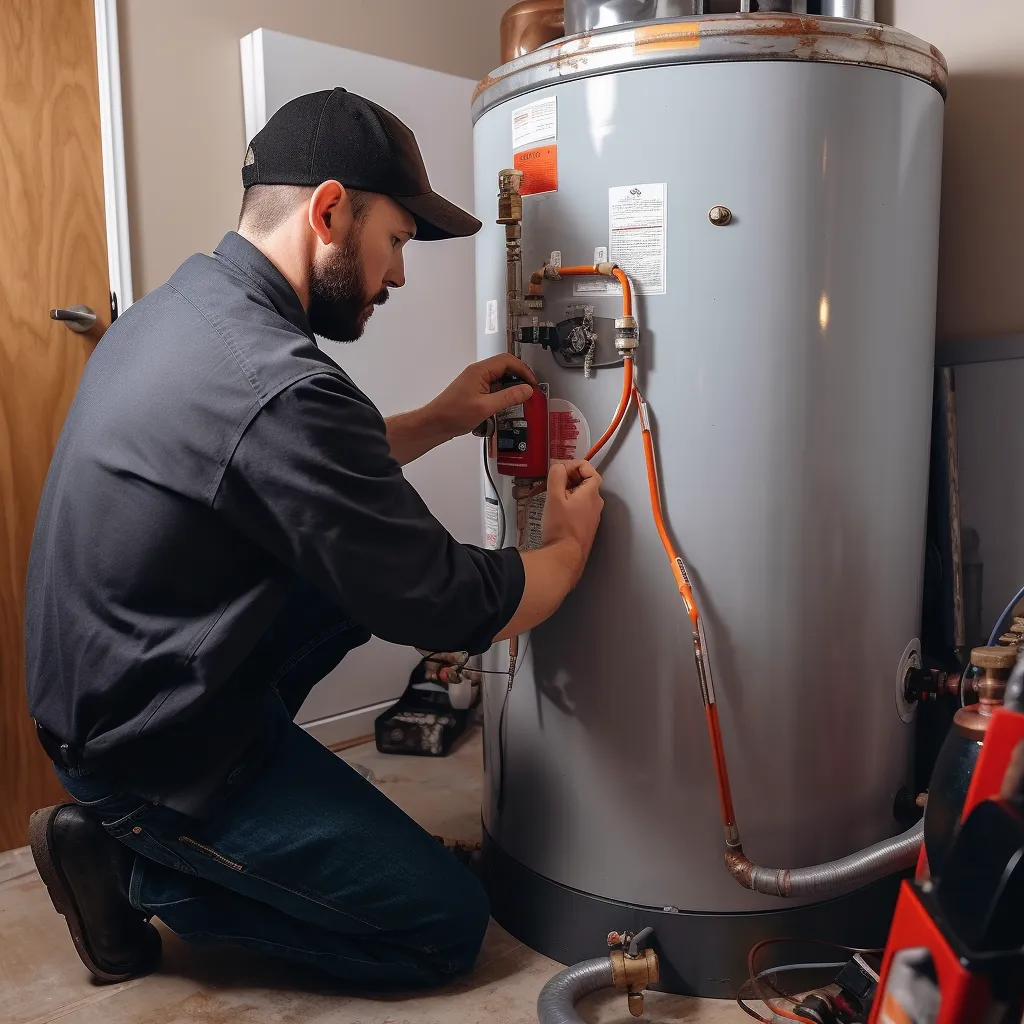
Regular Flushing: Sediment buildup can hinder your water heater's efficiency and lead to potential issues.
Temperature and Pressure Relief Valve Check: This valve is a critical safety feature that releases excess pressure and prevents the tank from bursting.
Insulation: Insulating your water heater and its pipes can minimize heat loss and improve energy efficiency.
Check for Leaks: Regularly inspect your water heater for any signs of leaks or dripping water. Even small leaks can lead to significant damage over time.
Maintaining your water heater is crucial for maximizing its longevity. By implementing regular maintenance practices, you can extend its lifespan and reap long-term benefits.

Address
any malfunctions
To maintain your water heater, address any malfunctions promptly. Insufficient hot water or strange noises can indicate problems. Contact a specialist for timely repairs to extend the heater's lifespan and save money in the long term.
Signs it's time to get a new water heater
Water heaters, like any mechanical device, have a finite lifespan, and this applies to your home's heater as well. If you observe certain warning signs, it's likely a sign that it's time to consider replacing it.
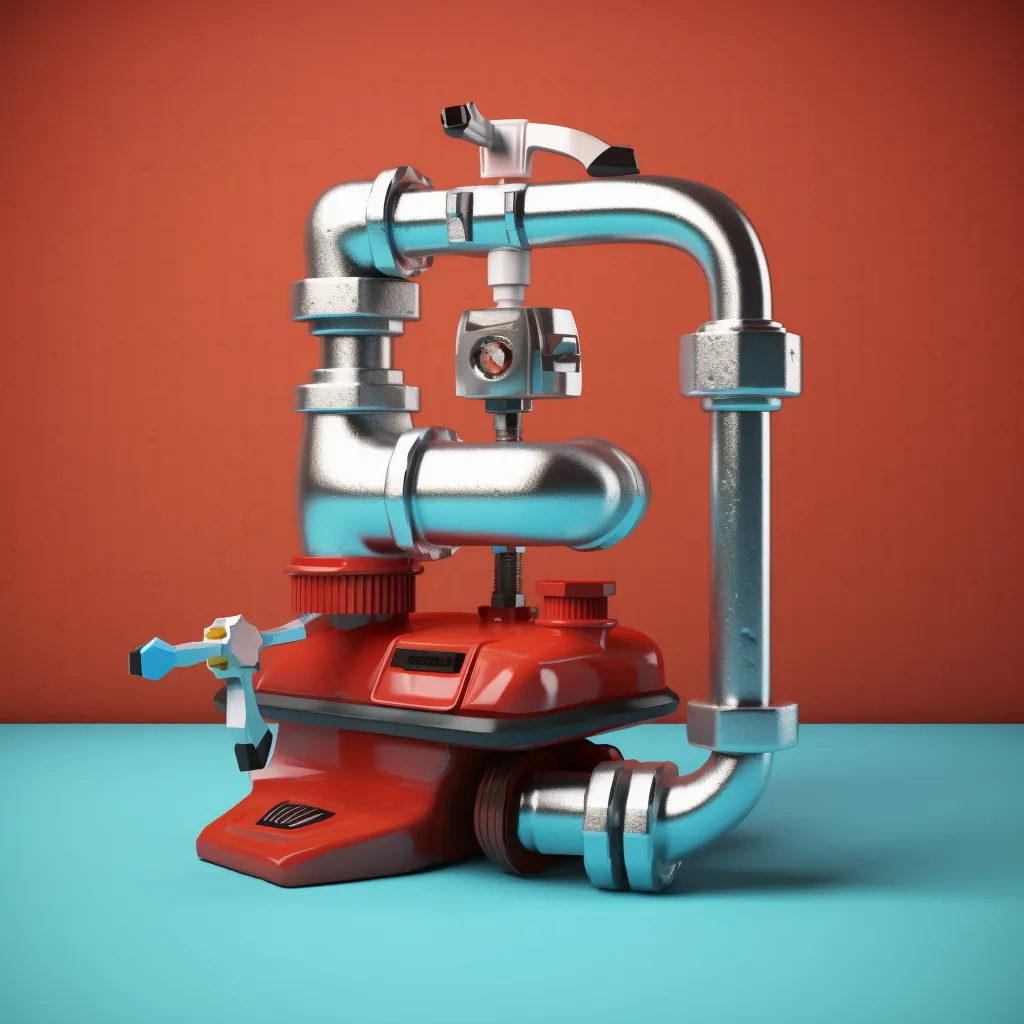
If your water heater is over 10 years old, it's worth considering a replacement. Most water heaters have a lifespan of 10-15 years.
Popping or gurgling sounds coming from your water heater suggest that a new tank is needed.
If you notice water pooling around the base of the water heater, it's important to address the issue, as it may indicate a leak that requires attention.
Frequent hot water outages or inconsistent heating can be a sign that your water heater is no longer functioning properly and may need to be replaced.
A faulty water heater can lead to increased energy consumption and higher bills. If you notice a sudden spike in your energy costs, it's worth considering a new water heater.
Frequent Repairs: If you find yourself frequently calling for repairs on your water heater, it may be more cost-effective in the long run to invest in a new, reliable unit.
Rusting or corroded areas on or around the water heater can be a clear indication that it's no longer functioning optimally and may need replacement.
If your hot water has an unusual taste or odor, it could indicate a problem with the water heater. Consider replacing it to ensure safe and clean hot water.
If your water heater consistently fails to provide enough hot water to meet your household's needs, it's a strong indicator that it's time for a replacement.

By paying attention to these warning signs, you can make an informed decision about replacing your water heater and ensure a reliable supply of hot water for your home.
What is the cost of replacing
a water heater?
When it comes to the cost of replacing a water heater, several factors contribute to the overall price. These factors include:
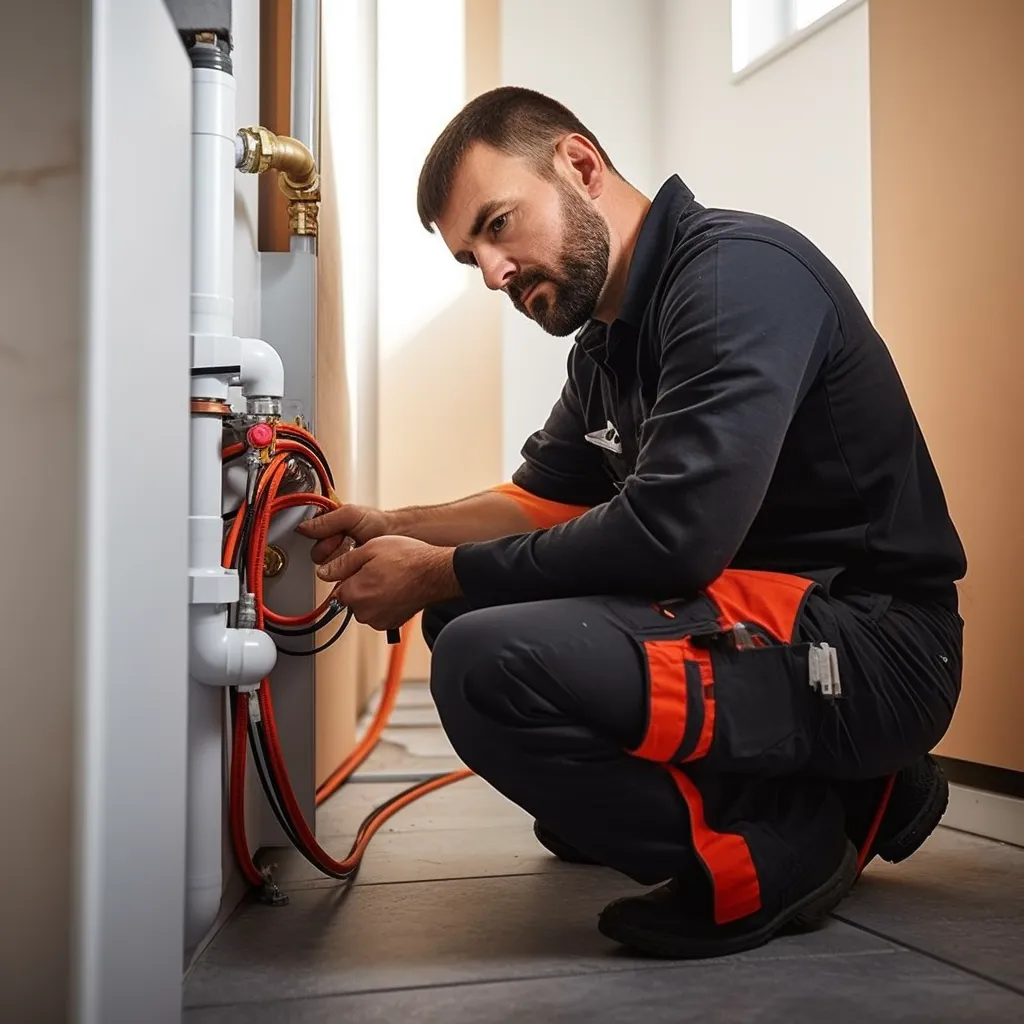
Type and Size: The type of water heater you choose, such as a traditional tank-based heater or a tankless unit, will affect the cost. Additionally, the size or capacity of the water heater needed to meet your household's hot water demands will influence the price.
Energy Efficiency: Energy-efficient water heaters often come with a higher upfront cost but can lead to long-term savings on energy bills. Investing in a more efficient model may have a higher initial price but can be cost-effective over time.
Installation Requirements: The complexity of the installation process can impact the cost. Factors such as accessibility, venting requirements, and necessary plumbing modifications can contribute to installation expenses.
Replacing a water heater requires a significant investment, and the costs involved can vary depending on several factors. For standard electric water heaters, the replacement costs typically range from $500 to $2,500. On the other hand, repair costs for tankless water heaters can be higher, ranging from $1,000 to $3,500.
Given the substantial expenses associated with water heater replacement, it is worth considering the long-term benefits. Opting for a high-quality unit can lead to reduced utility bills and improved energy efficiency, making it a worthwhile investment in the long run.
Common frequently asked questions about replacing and installing a water heater
When it comes to water heater replacement and installation, there are several frequently asked questions that can provide valuable guidance. Here are a few of them:
What size water heater do I need?
How long does the installation process typically take?
Which fuel source is recommended for my water heater?
What is the estimated cost of the replacement?
Is professional assistance necessary for the installation?
When it comes to water heater replacement or installation, it's important to consider your individual needs. To receive reliable guidance, it is crucial to consult licensed plumbers. They can assist you in selecting the appropriate size and type of water heater that best fits your home. Additionally, they can provide you with an estimate of the installation costs and any additional work that may be required.
How you can save money
when replacing a hot water heater
Replacing a hot water heater doesn't have to break the bank. Follow these money-saving tips to ensure a cost-effective replacement while maintaining consistent access to hot water for your home:

When replacing your water heater, it's important to conduct thorough research to find the best option for your home. Consider both standard electric models and tankless systems to determine which one suits your needs and preferences.
Prioritize energy efficiency when selecting a water heater. Investing in an energy-efficient model will lead to long-term cost savings by reducing your monthly utility bills. Look for a water heater that consumes less energy and has a high Energy Factor (EF) rating.
Shop around and compare prices from different retailers and suppliers to ensure you get the best deal. Take advantage of any rebates and incentives offered by your state for purchasing energy-efficient water heaters, as they can further reduce the overall cost.
While tankless water heaters may have a higher upfront cost, they offer significant energy savings over time. Consider the long-term benefits when making your decision.
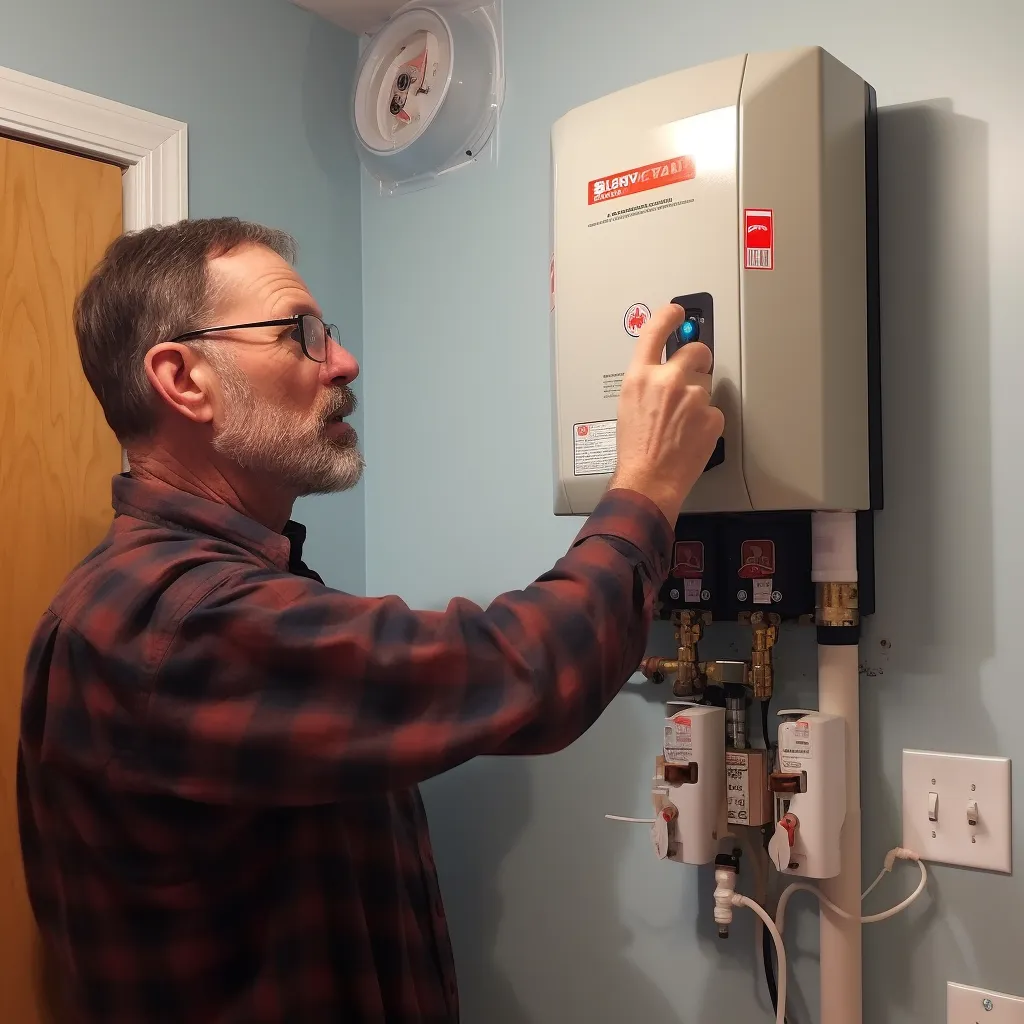
Why you should hire a professional
vs DIY installation
of a water heater
While replacing an old hot water heater may initially seem like a cost-saving idea, it's important to recognize that it can be a complex task. It might be tempting to attempt the installation yourself, but it requires specific skills and knowledge that professionals possess. Regardless of the route you choose, opting for professional installation can ultimately save you a significant amount of money in the long run.
Professionals have the expertise to ensure the installation is completed correctly, following the necessary codes and regulations. Moreover, professional installations often come with warranties, providing you with added peace of mind and a hassle-free experience.
On the other hand, taking a DIY approach may appear tempting, but it is not recommended. DIY installations increase the likelihood of errors, which can lead to further expenses such as repairs or increased energy usage.

Tips on finding a water heater professional for installation
When hiring a licensed professional for water heater installation, remember these key points:
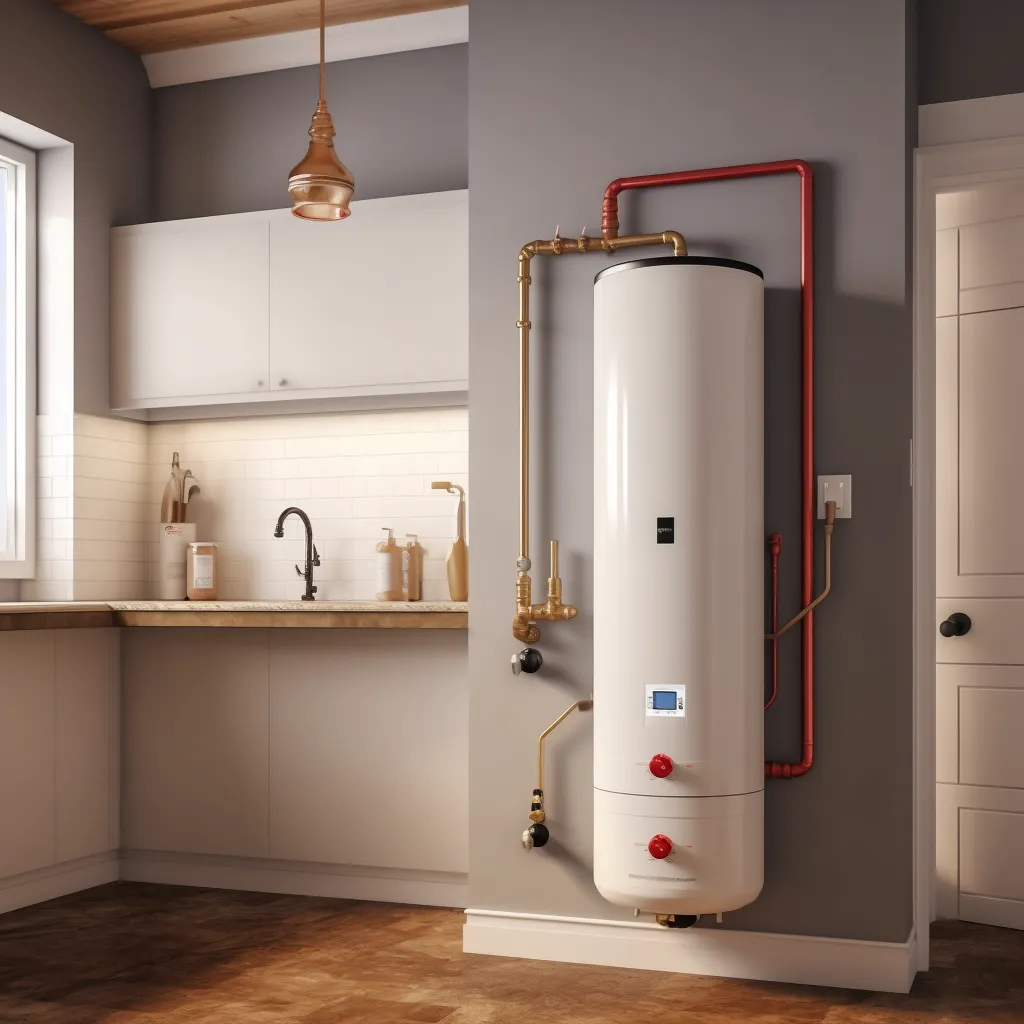
Check credentials and ensure they are licensed.
Consider their experience and expertise.
Read reviews to assess their reputation.
Verify insurance coverage for protection.
Obtain detailed cost estimates from multiple professionals.
Inquire about warranties or guarantees offered.
Confirm they will handle permits and comply with regulations.
Choose a professional who communicates effectively and transparently.
Contact Us
GET IN FULL TOUCH
PHONE: (831) 604-3132
EMAIL:
Gregory@waterheaterseaside.com
Family Home Plumbing Services
Seaside, CA 93955
